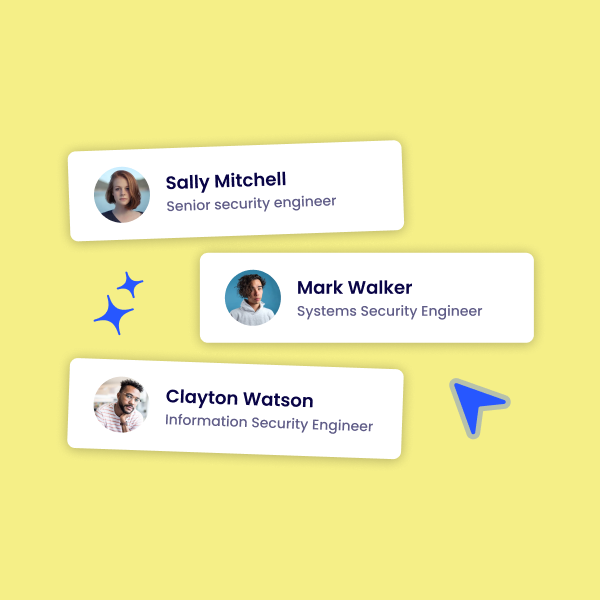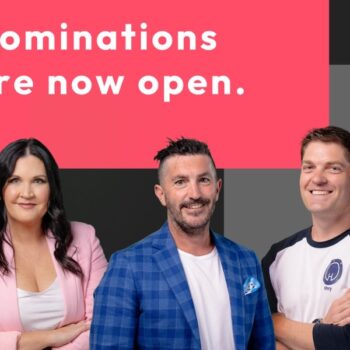AI: Supporting organisations to be more human-centred
Pictured above: Olivia Dyet.
AI shouldn’t be used to make decisions, but it can be used to aggregate large sets of data, to support people to be able to be more human-led, says one AI recruiting firm.
Fast-growing startup Empathix uses deep AI insights to take its clients through the recruitment process, from advertisement to CV reading to suggesting top candidates.
The firm says it aims to disrupt traditional recruitment practices and bridge the gap between employers and top-quality candidates.
The company is integrating a robust skills taxonomy of over 33,000 skills, to create customised job ads and reading CVs in moments, blending internet data with the client’s specifications.
“This approach ensures a comprehensive understanding of a candidate as a person, evaluating both hard and soft (power) skills, streamlining the recruitment process for efficiency, precision and eliminating bias at scale,” the firm says.
With an extensive background in HR, Empathix founder and CEO Olivia Dyet told NZBusiness that while AI has taken off in many sectors, there has been some caution among some HR practitioners towards AI, with regards to security and privacy, noting the sector has not traditionally been very tech reliant over the years.
She says what her company does is “use technology to understand who people are and where they might work so that humans can go and interact with those people. Everything that we’re doing is really targeted, but also focused on empowering the recruiter or the HR person”.
They have developed their own software and Olivia says everything it builds “is built in a human-centric way because we want to support organisations to be more human-centred, not less”.
“If you think about what happens currently, there’s the recruitment advertising pipeline or the sourcing pipeline. A HR personnel recruiter would have to go through maybe 10 steps to get to the right candidate and on average, that would take about 25 hours from vacancy to interview.”
Olivia says their software reads all of the CVS within five minutes and provides a summary of each candidate for the hiring manager recruiter to view.

“At the moment there’s a massive influx of candidates in the market and not enough jobs. Employers are concerned about candidate experience for their employer brand, but also to be doing the right thing [by the candidates].”
She says employers can get upwards of 300 applications per job, and the resources needed to read through all of the CVs is huge.
Her company set out to solve the problem of how to use technology “to be able to genuinely read through 300 CVS, and then rank those CVs in order of most likely to be suitable, to least likely be so. And then how to increase the response time from employer to candidate to let them know whether they had made it to interview or not. And doing it in a way that is objective and completely unbiased”.
“The thing I love about our technology is we’ve eliminated bias at scale. Using machine learning and generative AI, to the point that only when a person looks at a CV is bias introduced, because all humans are biased.”
She says from an internal perspective, rather than reading 100s of CVs, that resource can be used in more strategic areas like interviewing, coaching, employer brand or candidate experience.
“The philosophy we have is that AI shouldn’t be used to make decisions, but it can be used to aggregate large sets of data, to support people to be able to be more human-led, and also to understand where candidates might be and where there might be gaps in an organisation.”
As to how candidates feel about AI being used in the recruitment process, Olivia says there’s been no negative reaction.
She gets approximately 20 interactions a week from people asking how they can optimise their LinkedIn profile or their CV for AI or whether Empathix has a database they can be added into.
She notes too that AI is super contextual.
“With our software, we pick up multiple data points across the organisation around what the values are, what people care about, what the skills are, as well as the job description. So it’s a lot more than if a firm needs someone for a job, it’s like contextually, what does this job mean? Not only to an organisation but also to society.
“We use a layered approach – a combination of keyword analysis, semantic analysis, and natural language programming and generative AI to make sure that nothing is missed.”
She says the firm’s technology gives an accessible way for a HR manager to see all of the CVS so while the technology is ranking those who are most matched with a job it is up to the hiring manager or recruiter to make the decisions.
What’s a really important thing from a technology perspective is transparency, she says, so if a candidate has a more obscure strength, that too can be highlighted.
“All of the data that goes into our system is redacted, so no personal identifiable information is held about the candidate and our platform isn’t making any decisions around candidate experience or whether or not that person gets to the interview.”
The company has partnered with Microsoft and AWS and Olivia says the level of data encryption is at bank level.
The innovation shown by Empathix, and more specifically, Olivia has also seen her being recognised as a finalist in the 2024 Hi-Tech Awards, Hi-Tech Inspiring Individual category.
The firm’s chief technology officer is also working towards the International Association of Privacy Professionals (IAPP) certification for privacy and Olivia says when the CTO takes that exam “I hope that we’ll be the first organisation in New Zealand to hold that accreditation”.
This article was originally published in the June 2024 issue of NZBusiness magazine. To read the issue, click here.



